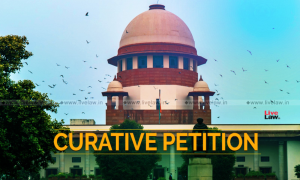ForumIAS announcing GS Foundation Program for UPSC CSE 2025-26 from 19 April. Click Here for more information.
Source-This post on Curative Petition has been created based on the article “In allowing curative plea in DMRC case, how Supreme Court pushes the envelope” published in “The Indian Express” on 11 April 2024.
Why in the news?
The Supreme Court has recently set aside the 2017 arbitral award that required the Delhi Metro Rail Corporation (DMRC) to pay nearly Rs 8000 crore to Anil Ambani-owned Reliance Infrastructure. However, exercising curative jurisdiction in a commercial case pushes the envelope and raises questions on the finality of a ruling of the highest court in the country.
About Curative Petition

Description– It is the final and last option for the people to acquire justice. The concept of curative petition originated from the case of Rupa Ashok Hurra Vs. Ashok Hurra and another case (2002). It may be filed after a review plea against the final conviction is dismissed.
Objective– To ensure there is no miscarriage of justice and to prevent abuse of process.
Criteria for admission:-
1) It can be entertained if the petitioner establishes that there was a violation of the principles of natural justice.
2) It can be admitted where a judge has failed to disclose facts that raise the apprehension of bias.
3) A curative petition needs a senior advocate’s certification that mentions a good number of reasons to consider it.
Who hears Curative petitions?
1) A curative petition must be first circulated to a bench of the 3 senior-most judges, and the judges who passed the concerned judgment (If available).
2) It only gets listed for a hearing if most of the judges agree that it is necessary and, ideally, it is heard by the same Bench as before.
3) Curative petitions are usually decided by judges privately, unless someone asks for an open-court hearing.
4) At any point, the Bench can ask a senior counsel to assist as amicus curiae during the curative petition review.
5) If the Bench decides at any point that the petition is baseless and without any merit, it can make the petitioner pay extra costs.
Read more-Article 136 of Indian Constitution
UPSC Syllabus- Polity and Nation




